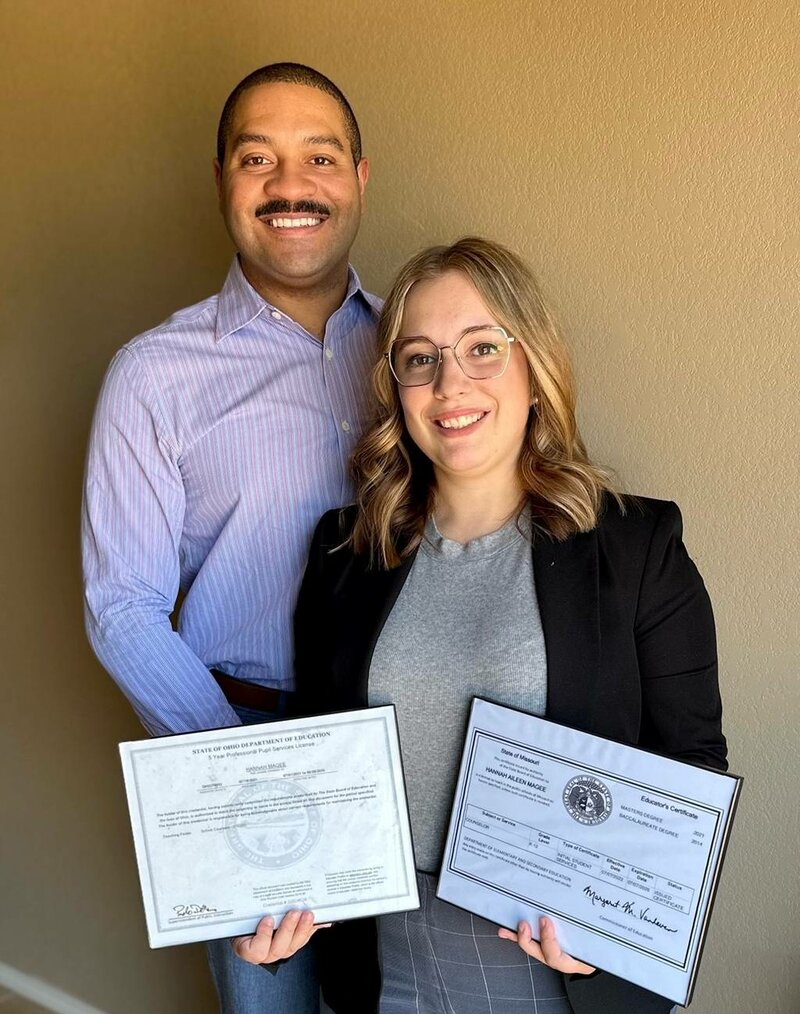Posted on Jul 25, 2023
DOJ tells Texas to stop messin’ with military spouse job licenses
5.17K
16
5
3
3
0
Posted >1 y ago
Responses: 2
I read this article yesterday and had a similar reaction (what are they thinking?). I looked into the case* to see if it could shed more light on the issue. I don't think any ideology or politics were involved at all - just a bureaucrat being a bureaucrat. It came down to an interpretation of "using the license within the last two years" as the new provisions* of USARA require.
The Judge viewed that Mrs. Portee's interpretation was likely correct in interpretation and that she would probably win when the case comes to trial, thus she was granted the injunction.
Texas law* requires that persons seeking a Texas educator certification based on out-of-state licenses must either pass Texas examinations or submit verification of two academic years of full-time, wage-earning experience in a public or private school in the licensed position.
When the new provisions of SCRA were brought to their attention, it seems the state waived all other requirements but maintained that she show proof of the last two years of active use by her since 50 USC § 4025a(c)(2) states, "the servicemember or spouse of a servicemember has actively used during the two years immediately preceding the relocation".
The Texas DOE viewed 50 USC § 4025a(c)(2) as requiring "continual use in the last two years" prior to relocation (JAN 21 - JAN 23) (which happens to coincide with the state's law about transporting out-of-state licenses). Mrs. Portee's lawyers argued that it was an incorrect interpretation and that it required that the license be used sometime in the last two years, not continually.
As I mentioned up above, the Judge agree with Mrs. Portee's interpretation.
-----------------------------------------
* https://casetext.com/case/portee-v-morath
* New SCRA provision (June 2023) - https://www.law.cornell.edu/uscode/text/50/4025a
* TX Law - Educator Certification - Section 21.003 https://statutes.capitol.texas.gov/Docs/ED/htm/ED.21.htm
The Judge viewed that Mrs. Portee's interpretation was likely correct in interpretation and that she would probably win when the case comes to trial, thus she was granted the injunction.
Texas law* requires that persons seeking a Texas educator certification based on out-of-state licenses must either pass Texas examinations or submit verification of two academic years of full-time, wage-earning experience in a public or private school in the licensed position.
When the new provisions of SCRA were brought to their attention, it seems the state waived all other requirements but maintained that she show proof of the last two years of active use by her since 50 USC § 4025a(c)(2) states, "the servicemember or spouse of a servicemember has actively used during the two years immediately preceding the relocation".
The Texas DOE viewed 50 USC § 4025a(c)(2) as requiring "continual use in the last two years" prior to relocation (JAN 21 - JAN 23) (which happens to coincide with the state's law about transporting out-of-state licenses). Mrs. Portee's lawyers argued that it was an incorrect interpretation and that it required that the license be used sometime in the last two years, not continually.
As I mentioned up above, the Judge agree with Mrs. Portee's interpretation.
-----------------------------------------
* https://casetext.com/case/portee-v-morath
* New SCRA provision (June 2023) - https://www.law.cornell.edu/uscode/text/50/4025a
* TX Law - Educator Certification - Section 21.003 https://statutes.capitol.texas.gov/Docs/ED/htm/ED.21.htm

Portee v. Morath, 1:23-CV-551-RP | Casetext Search + Citator
Read Portee v. Morath, 1:23-CV-551-RP, see flags on bad law, and search Casetext’s comprehensive legal database
(3)
(0)
MAJ James Woods
Thanks. That brings much needed context and shows bureaucrats need to have more liberal interpretation when applying them to military spouses that already have a tough time with PCS transitioning in support of their uniformed significant other.
(2)
(0)
MAJ James Woods it is only recently that nursing licenses became valid in more than just the state they were issued in. One would think that the need for nurses is universal but for decades, a new licensure was needed if you moved to another state. When a military member moved with a nurse, the nurse, despite all the education and experience, had to start back at ground zero.
(3)
(0)
MAJ James Woods
Yet doesn't mean it's right. Let me guess, you have to pay every time to get certified in a new state? Sounds like a money making scheme. I get it with lawyers as state laws are different for each state but how doctors and nurses apply their medical knowledge different for each state? Imagine a mandate to have to take the driver's test every time you moved regardless your license is still valid cause some state bureaucrat feels it a necessity. "Just cause you could be certified in 49 states doesn't mean you're certified in mine" has new meaning.
(1)
(0)
SFC Casey O'Mally
I agree with requiring certification in the new state for all medical practitioners.
Laws are different in each state. Sure, drawing blood and placing an IV doesn't change. But who is allowed to order what, prescribe what, and perform what DOES (and, on some cases, what procedures are even allowed). Requiring that a practitioner from another state prove competence with current state law is not unreasonable.
This also goes for educators regarding state curriculum requirements, lawyers, carpenters, and many other trades.
Laws are different in each state. Sure, drawing blood and placing an IV doesn't change. But who is allowed to order what, prescribe what, and perform what DOES (and, on some cases, what procedures are even allowed). Requiring that a practitioner from another state prove competence with current state law is not unreasonable.
This also goes for educators regarding state curriculum requirements, lawyers, carpenters, and many other trades.
(0)
(0)
Read This Next



 Spouse
Spouse Certifications
Certifications


